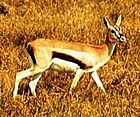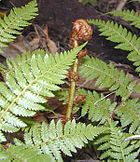One of the most talked about things this week was a strange video of a man who appeared to have a real life jet-powered hoverboard. The video was published by Zapata Racing, which has made water-powered versions of these flying machines for a few years now . The difference is that those are always tethered to some kind of personal watercraft. This new "Flyboard Air," as CEO Franky Zapata calls it, is something totally different. The video went viral on Monday, and it polarized the internet. People thought it was either the coolest thing ever invented , or that it was a massive hoax . Even optimistic parties, like myself, were skeptical . Maybe we all still feel a little burned by Tony Hawk and FunnyorDie, or maybe we were just being careful — after all, the video was suspiciously edited, there were very few details, and it just looked a little fake. Over the week, more videos of the flight(s) surfaced, and it appeared to be the real deal. This morning, thou...
"Biological science" redirects here. It is not to be confused with life science.
For other uses, see Biology (disambiguation).
Biology is a natural science concerned with the study of life and living organisms, including their structure, function, growth,evolution, distribution, identification andtaxonomy.[1] Modern biology is a vast and eclectic field, composed of many branches and subdisciplines.[clarification needed] However, despite the broad scope of biology, there are certain unifying concepts within it that consolidate it into single, coherent field. In general, biology recognizes the cell as the basic unit of life, genes as the basic unit ofheredity, and evolution as the engine that propels the creation of new species. It is also understood today that all organisms survive by consuming and transforming energy and by regulating their internal environment to maintain a stable and vital condition known as homeostasis.
Sub-disciplines of biology are defined by the scale at which organisms are studied, the kinds of organisms studied, and the methods used to study them: biochemistry examines the rudimentary chemistry of life; molecular biology studies the complex interactions among biological molecules; botany studies the biology of plants; cellular biologyexamines the basic building-block of all life, the cell; physiology examines the physical and chemical functions of tissues, organs, andorgan systems of an organism; evolutionary biology examines the processes that produced the diversity of life; and ecologyexamines how organisms interact in theirenvironment.[2]




Place read
ReplyDeletePlace read
ReplyDelete